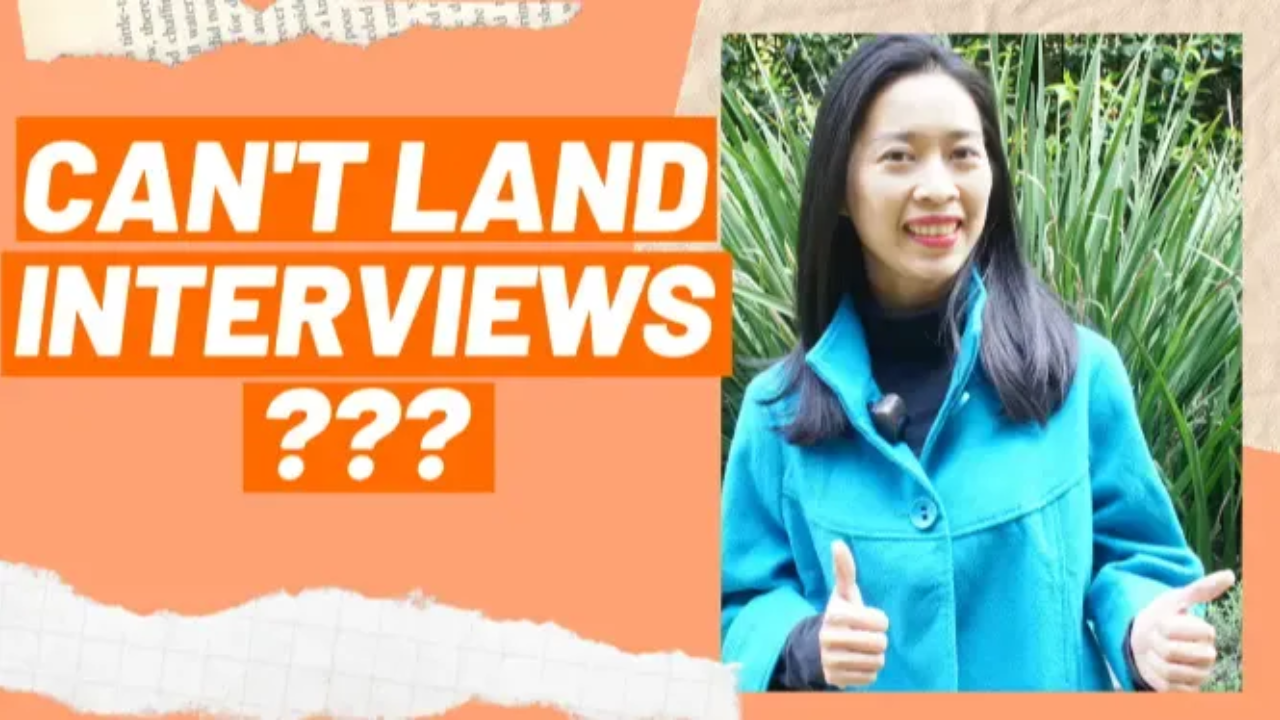Why Am I Not Getting Job Interviews? 4 Reasons and How to Fix Them

If you’ve been sending out job applications but haven’t heard back from a single employer, you’re not alone. Many skilled migrants and international students face this exact challenge. You know something isn’t working — but you can’t pinpoint the problem. That’s where I come in.
In this article, I’ll walk you through the four most common reasons you’re not getting job interviews — and more importantly, what to do about them.
Reason 1: Your Application Doesn’t Look Like a Good Fit
One of the biggest mistakes job seekers make is using the same resume and cover letter for every job. Even if the job titles are the same, the required skills and priorities can vary greatly between companies.
For example, a Data Analyst role at one company may require strong data visualisation skills, while another might emphasise statistical modelling. If your resume doesn’t reflect the specific skills mentioned in the job ad, the hiring manager will assume you’re not the right match.
What to do:
- Carefully review each job description.
- Identify the top 3–5 skills or requirements.
- Customise your resume to highlight those specific skills and achievements.
This doesn’t mean rewriting your resume from scratch every time — it means tailoring your professional summary, keywords, and achievements so they align perfectly with the job posting.
Reason 2: You’re Competing in a Crowded Applicant Pool
The average advertised job can receive 100–200 applications. When so many candidates have similar qualifications, your chances of being shortlisted drop sharply.
The solution? Stop competing in the most crowded part of the market.
This is where the Hidden Job Market comes in — up to 80% of roles are never advertised publicly. They’re filled through networking, internal referrals, or direct outreach. In these situations, you might have zero competition.
How to access it:
- Build relationships with professionals in your industry.
- Use LinkedIn strategically to connect with hiring managers.
- Attend industry events, webinars, and networking groups.
By tapping into this market, you’re not just increasing your chances — you’re bypassing the bulk of the competition altogether.
Reason 3: You’re Applying Too Late
Job ads may stay online for 3–4 weeks, but that doesn’t mean employers wait until the closing date to review applications. In many cases, they start shortlisting candidates within the first few days.
If you apply two or three weeks after the ad is posted, the shortlist may already be full — and your application gets little attention.
What to do:
- Check job boards daily.
- Set up email alerts for new postings in your field.
- Keep a tailored resume and cover letter ready so you can apply within 24 hours of seeing a suitable role.
Speed matters — applying early can put you ahead of dozens of equally qualified candidates.
Reason 4: Other Applicants Are Better Qualified
Sometimes the reason is simple: you’re competing with candidates who have significantly more experience or niche expertise. While you can’t change your years of experience overnight, you can make yourself more competitive by improving other aspects of your application.
Strategies to compete:
- Highlight transferable skills that others might overlook.
- Showcase measurable achievements (e.g., “increased sales by 20%” instead of “responsible for sales”).
- Upskill in areas that are in high demand in your industry.
Even if someone has more years on their resume, a stronger application and interview performance can help you win the role.
Final Thoughts
If you’ve been asking yourself, “Why can’t I land a job interview?” these four reasons may be holding you back. The good news is that each one is fixable — with the right strategies, you can stand out, beat the competition, and secure interviews faster.
Frequently Asked Questions
- How many jobs should I apply for each week?
Quality matters more than quantity. Aim for 5–10 highly targeted applications per week rather than 30 generic ones. - Do I really need a different resume for each job?
Yes, you should tailor your resume to highlight the skills and experience most relevant to each role. - How do I access the hidden job market without a network?
Start by connecting with industry professionals on LinkedIn, attending free webinars, and joining professional groups related to your field. - Is it worth applying for jobs if I don’t meet every requirement?
Absolutely — if you meet at least 70% of the requirements, you still have a chance. Employers often list “wish lists” rather than strict criteria.
Get Your Skilled Job Starter Kit
If you want to fast-track your job search and land more interviews, start with the Skilled Job Starter Kit. Inside, you’ll find my ATS-friendly resume template, cover letter guide, and networking scripts — the exact tools my clients use to get hired.
Download your free Skilled Job Starter Kit now: https://www.theaho.co/free


